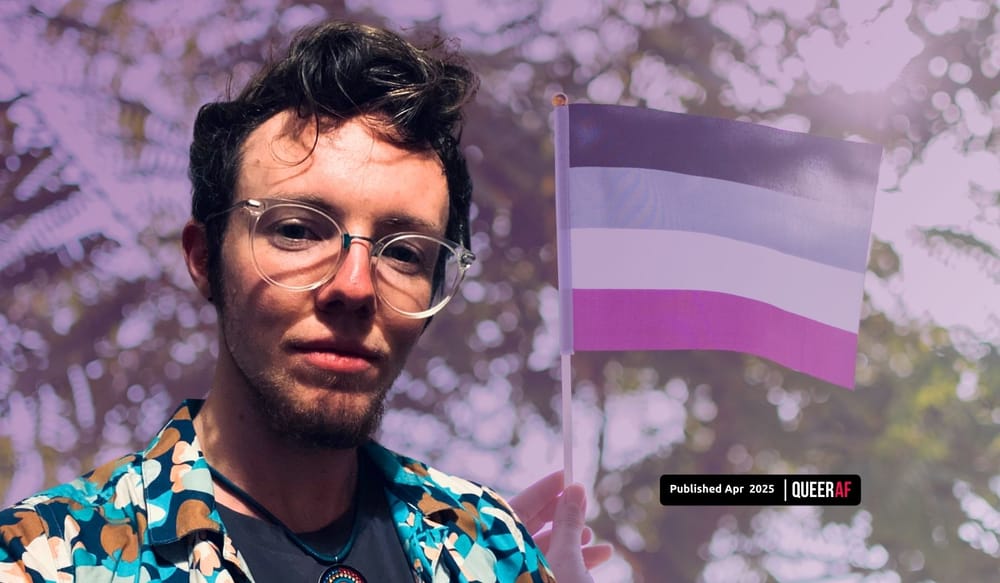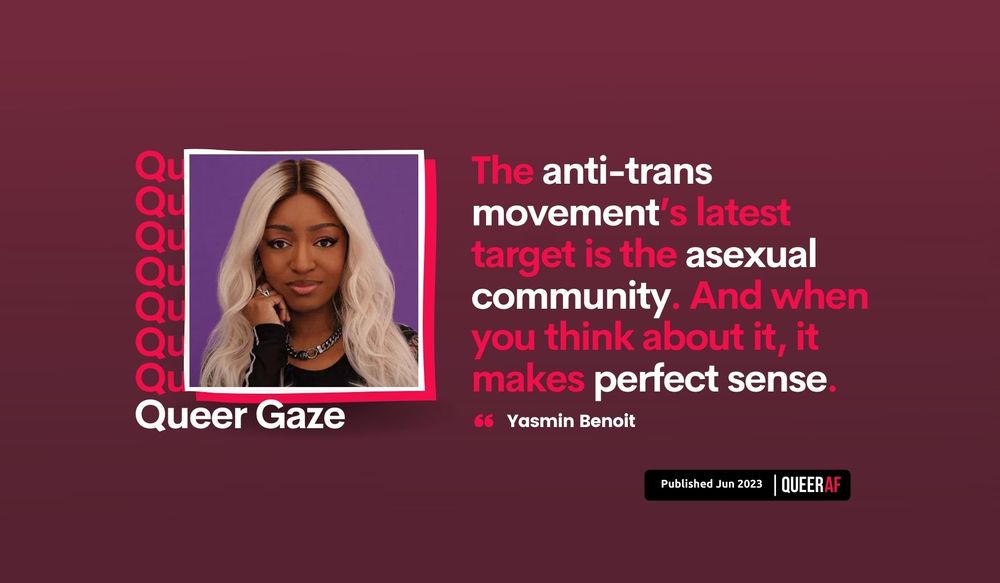
TL;DR: A new report from Asexual activist, Yasmin Benoit and Stonewall offers the most comprehensive review of the discrimination asexual people face in the UK today. It makes for painful reading. Stonewall recommends that asexual identities are officially recognised in law to improve the picture, but that journey is fraught with danger of the process being hijacked by the anti-LGBTQIA+ lobby.
Asexual activist and researcher Yasmin Benoit released a landmark report with Stonewall this week about life for asexual people in the UK.
The report reveals, for essentially the first time, a comprehensive view of the shocking experiences of asexual people with healthcare, the workplace, and societal discrimination, laying out the case for better legal and policy protections.
The report reveals the extent to which ace people hide their sexuality at work, among friends, and in healthcare settings.
Groundbreaking Stonewall report reveals ace community needs
The report highlights that ace people (who make up around 1-2% of the population) are overlooked and ignored even within LGBTQIA+ spaces.
Many report self-silencing their asexuality, with only 1-in-4 people choosing to be open with friends about it.
Asexual people are much less likely to reveal their sexuality to work colleagues and often choose not to divulge their sexuality in healthcare settings either for fear of negative reactions, with many facing them before.
What does the report recommend?
Speaking on what ace people need to drive greater acceptance, Yasmin Benoit, a QueerAF contributor, said:
“The ace community deserves legal recognition. We deserve protection. It’s true that there is currently no legal recognition for asexual people in law. The Equality Act 2010 does not include it as a protected characteristic.”
Stonewall’s Director of Communication and External Affairs, Robbie de Santos, says that our political leaders need to adopt the report’s recommendations to support ace people better.
Perhaps the most striking part of the report for a wider audience sets out what could become a new lobbying focus for asexual activists that: “recognising asexual identities as a minority sexual orientation could help improve understanding and support.”
Crucially, the report recommends this is done through equality and hate crime laws, as well as guidance on teaching about asexual identities in school.
Analysis: Could equality law reform be a can of worms?
The journey to bring in the report’s recommendations is fraught with danger. To achieve this would likely mean re-opening the Equality Act in parliament.
This is something that would make many in the Trans+ community nervous, as interference from gender-critical campaigners could hijack the process of getting anti-trans beliefs enshrined in law.
Sources close to QueerAF at multiple major LGBTQIA+ charities suggest the organisations are nervous about pursuing this in the current climate and are, therefore, urging activists not to call for any changes at this time.
That’s despite a growing acknowledgement that the Equality Act does need to be reformed. Not just for asexual people but for non-binary people and Intersex people as well. Although 2020 case law did establish that “Non-binary” and “Gender-fluid” people are considered protected under the characteristic of “Gender Reassignment” in the Equality Act, similar case law has also protected gender critical views under the beliefs category.
Securing our rights is a community-wide effort. But we must ensure we do not lose rights in the process. This report also sets out concrete evidence that the asexual community has been telling us about for years.
Asexual people are underrepresented, overlooked, and discriminated against in the spaces they should feel most safe and supported – in healthcare, workplaces, and with those closest to them.

I love the QueerAF newsletter and I love QueerAF’s mission.
Why? Because queer news and opinion, written by queer people for queer people, is a crucial component needed for our collective liberation.
We have a media ecosystem where sensationalism and disinformation are valued on the hunt for clicks to sell to advertisers.
It’s something I wrote about comprehensively earlier this year following the murder of Brianna Ghey.
This is why I signed up to and , why I read it every week, and why I now subscribe to support as a QueerAF member.
It’s why I said yes to guest editing the newsletter this week where this article was from.
I believe is a better way for our community to be seen, heard, and celebrated.
If you do too, please consider joining me and supporting QueerAF by signing up.
Let’s change the media for good.










